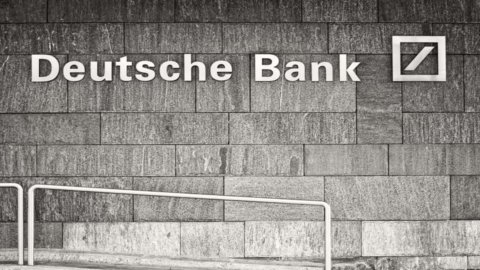Strasbourg calls for mandatory "Made in" on the labels of non-food and non-pharmaceutical products. The tug of war had been going on for some time. On one side the European Parliament, an expression of popular will, on the other the EU Council, where the governments of the 28 member states are represented. A push and pull that, as with the anti-dumping duty proposal, seemed to have no end. And which, at least for the time being, ended with a vote by the Strasbourg Assembly in its last plenary session before the elections. In the meantime, a vote that fixes the position of the Parliament which, in its new composition, will inevitably have to reach an agreement with the Council.
"A big step forward for the transparency of the supply chain of a product, which represents an undoubted advantage for consumers," said one of the two rapporteurs of the measure, Danish MEP of the S&D parliamentary group Christel Schaldemose. She was also very critical of the EU member states, "which were unable to agree on a common position, thus blocking the completion of the legislative process of the regulation (the European law directly applicable in all member states - ed), to the detriment of consumer safety in Europe".
With this vote (485 yes, 130 no, 27 abstentions), the MEPs accepted the European Commission's proposal to make mandatory what is currently still a voluntary option: i.e. the application of a label with the indication of the country of origin on products (excluding food and medicines) sold in all countries of the European Union. That is, for example, "made in Italy" or "made in Germany" or, more generally, "made in EU"; but also "made in China" or "made in Bangladesh". But, for the definitive approval of the new rules, it will be necessary to wait for Parliament and the Council, in their capacity as "co-legislators", to agree on a compromise solution: a result which, realistically, cannot be achieved before the end of the summer.
As for the definition "country of origin", the text approved in Strasbourg specifies that it serves to identify the State in which the product "was the object of the last substantial and economically justified processing or working". Phase concluded with "the manufacture of a new product or one that has represented an important phase of the production process", as stated in the EU customs code.
As for the sanctions against those who violate the rules when they enter into force, the deputies with a second provision ask that these be "proportionate and dissuasive" in relation to the seriousness, duration and intentional or recurring nature of the violation as well as than the size of the company that was responsible for it. They also urge the Brussels Commission to set up a black list of companies that "intentionally and repeatedly" violate the new product safety standards. And finally, they propose the creation of a pan-European database of products found to be defective or dangerous.
The rules on sanctions were approved by the Strasbourg Assembly in first reading (573 yes, 18 no, 52 abstentions) to ensure, as the presenters underline, that "the work carried out during this legislature can be taken up by the new Parliament which will thus be able use it as a basis for further and hopefully fruitful negotiations with Member States”.
"These new rules on the subject of sanctions - observes the rapporteur of the provision, the Finnish MEP of the EPP Sirpa Pietikãinen - in any case constitute an important step in the direction of a stronger and more coordinated surveillance at European level, which will increase the degree of safety of the products marketed throughout the EU”.





